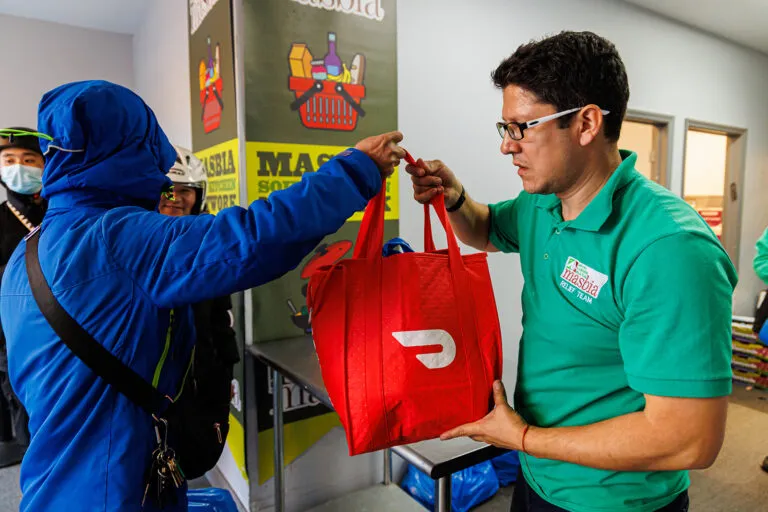Overview
DoorDash, renowned for its food delivery services across the United States, has marked a significant milestone by delivering over 100 million charity meals through its Project DASH initiative. This program focuses on supporting faith-based organizations and nonprofits in their efforts to combat hunger and poverty.
Key Aspects of Project DASH
Community Impact and Partnerships
Launched during the COVID-19 pandemic, Project DASH has become a vital resource for various nonprofits, including religious organizations. These partnerships have been instrumental in providing food aid to underserved communities across the country. Notable collaborations include:
- Chicago: Mass feedings and support for local churches, including Good Hope Freewill Baptist Church, which serves the East Garfield Park neighborhood, a recognized “food desert.”
- New York: Emergency deliveries of frozen food to Masbia Soup Kitchen Network, ensuring timely distribution to 2,500 families.
- Boston: Distribution of gift cards and meal resources through affiliated churches to aid families in need.
Financial and Logistical Support
Since its inception, DoorDash has provided not only meal deliveries but also financial support through community credits and event sponsorships. These contributions have supported various activities, including turkey giveaways and faith-based vaccination efforts.
Historical and Operational Context
Origin and Development
Project DASH was conceived during a 2018 employee hackathon and has evolved to include a model where DoorDash drivers, known as Dashers, are compensated for their nonprofit-related deliveries. The program subsidizes delivery costs and assists nonprofits in securing local funding.
Sustainability and Challenges
A 2023 Urban Institute report highlighted that while some partners have faced challenges sustaining the service without full in-kind support, many consider home delivery an essential service. This perspective was reinforced during the pandemic, which underscored the need for reliable food delivery mechanisms.
Testimonials and Impact
Voices from the Field
- Pastor Cornelius Parks of Good Hope Freewill Baptist Church praised DoorDash’s partnership, noting its significant impact on his church’s ability to serve the community amid limited resources.
- Alexander Rapaport, Executive Director of Masbia Soup Kitchen Network, emphasized the efficiency of DoorDash’s delivery system in meeting urgent food distribution needs.
- Rev. David Wright, Executive Director of BMA TenPoint in Boston, highlighted the crucial role of DoorDash’s resources in supporting local congregations and families.
Broader Implications
The partnership between DoorDash and various organizations extends beyond immediate food relief. It also provides crucial support to churches and nonprofits that face financial constraints, enabling them to continue their community-focused missions.
Conclusion
DoorDash’s Project DASH has demonstrated a significant commitment to alleviating hunger and supporting nonprofit efforts across the United States. The initiative’s impact on communities highlights the importance of partnerships between corporate entities and charitable organizations in addressing critical social issues.
FAQ
Q: What is Project DASH?
A: Project DASH is DoorDash’s initiative that partners with faith-based and nonprofit organizations to deliver charity meals and provide financial support for food aid and other community services.
Q: How many charity meals has DoorDash delivered through Project DASH?
A: DoorDash has delivered over 100 million charity meals through Project DASH.
Q: What types of organizations does Project DASH support?
A: Project DASH supports a range of organizations, including religious groups, food pantries, and other nonprofits focused on combating hunger and poverty.
Q: How does DoorDash support these nonprofits?
A: DoorDash provides meal deliveries, financial support through community credits, and sponsorship for events such as food giveaways and faith-based activities.
Q: What was the origin of Project DASH?
A: Project DASH was conceived during a 2018 employee hackathon and has since included a model where DoorDash drivers are paid for nonprofit-related deliveries.
Q: What challenges have been faced by Project DASH partners?
A: Some partners have struggled to sustain the service without full in-kind support, but many view home delivery as an essential component of their services.
Q: How has the initiative impacted local communities?
A: The initiative has provided crucial food aid and financial support, significantly benefiting underserved communities and enabling nonprofits to continue their missions.


